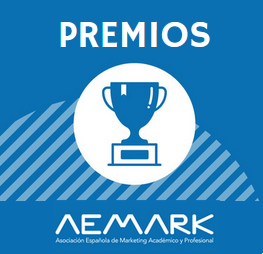Artículos
CANDIDATOS AL PREMIO AEMARK AL MEJOR ARTÍCULO DE INVESTIGACIÓN EN MARKETING (edición 2025, artículos publicados en 2024)

El premio (un premio y 2 accésits) al mejor artículo de investigación en marketing publicado en 2024, que se dará a conocer durante la celebración de la Asamblea General de AEMARK en septiembre 2025, contará con el comité evaluador de tres especialistas de reconocido prestigio.
En esta edición se han recibido un total de 22 trabajos que cumplían con las bases del premio. La relación completa de las investigaciones recibidas ha sido la siguiente (por orden alfabético):
|
Artículos (en orden alfabético) |
doi |
|
Barta, S., Ibáñez-Sánchez, S., Orús, C., & Flavián, C. (2024). Avatar creation in the metaverse: A focus on event expectations. Computers in Human Behavior, 156, 108192. |
|
|
Belanche, D., Casaló, L.V., & Flavián, M. (2024). Human versus virtual influences, a comparative study. Journal of Business Research, 173, 114493. |
|
|
Bigné, E., Currás-Perez, R., Ruiz, C., & Andreu, L. (2024). I want to travel to the past! The role of creative style and historical reconstructions as antecedents of informativeness in a virtual visit to a heritage tourist destination. Current Issues in Tourism, 27(20), 154-169. |
|
|
Bigné, E., Ruiz, C., & Currás-Pérez, R. (2024). Furnishing your home? The impact of voice assistant avatars in virtual reality shopping: A neurophysiological study, Computers in Human Behavior, 153, 108104. |
|
|
Bigne, E., Ruiz, C., & Currás-Pérez, R. (2024). How consumers process online review types in familiar versus unfamiliar destinations. A self-reported and neuroscientific study, Technological Forecasting and Social Change, 199, 123067 |
|
|
Blanco-Moreno, S., González-Fernández, A.M., Muñoz-Gallego, P.A., & Casaló, L.V. (2024). Understanding engagement with Instagram posts about tourism destinations. Journal of Destination Marketing & Management, 34, 100948. |
|
|
Cuesta-Valiño, P., Gutiérrez-Rodríguez, P., García-Henche, B., & Núñez- Barriopedro, E. (2024). The impact of corporate social responsibility on consumer brand engagement and purchase intention at fashion retailers. Psychology & Marketing, 41(3), 649–664. |
|
|
David-Negre, T., & Gutiérrez-Taño, D. (2024). Self-efficacy and personal innovation in the intention to use of facial recognition systems by tourists: A mediation model moderated by trust and anticipated emotions. Current Issues in Tourism, 1-16. |
|
|
Delgado-Ballester, E. & Fernandez-Sabiote, E. (2024). Brand stereotypes: On the relationships with gendered brand personality and agentic and communal values in fostering consumer-brand identification. Journal of Business Research, 177, 114635. |
|
|
Flavián, C., Belk, R.W., Belanche, D., & Casaló, L.V. (2024). Automated social presence in AI: Avoiding consumer psychological tensions to improve service value. Journal of Business Research, 175, 114545. |
|
|
Flavián, C., Ibáñez-Sánchez, S., Orús, C., & Barta, S. (2024). The dark side of the metaverse: The role of gamification in event virtualization. International Journal of Information Management, 75, 102726. |
|
|
Francioni, B. & Martín Martín, O. (2024), International market, network, and opportunity selection: A systematic review of empirical research, integrative framework, and comprehensive research agenda, Journal of International Management, 30(5), 101174. |
|
|
García-Carrión, B., Muñoz-Leiva, F., Del Barrio-García, S., & Porcu, L. (2024). The effect of online message congruence, destination-positioning, and emojis on users’ cognitive effort and affective evaluation. Journal of Destination Marketing & Management, 31, 100842. |
|
|
Gil-Saura, I, Ruiz-Molina, ME, Berenguer-Contrí, G., & Marín-García, A. (2024). Sustainability-oriented innovation in retailing. Psychology & Marketing, 41(2), 240- 253. |
|
|
Ma, Y., Ailawadi, K.L., Martos-Partal, M., & González-Benito, Ó. (2023). Dual branding by national brand manufacturers: Drivers and outcomes. Journal of Marketing, 88(3), 69-87. |
https://doi.org/10.1177/ 00222429231196575 |
|
Mora, E., Vila, N. & Küster, I. (2024). Qualitative social media content analysis as teaching-learning method in higher education. Interactive Learning Environments, 32(6), 2491-2505. |
|
|
Román, S., Riquelme, I.P., & Iacobucci, D. (2024). Antecedents and consequences of perceived helpfulness of extremely positive and exaggerated reviews. Journal of Retailing and Consumer Services, 80, 103907. |
|
|
Román, S., Riquelme, I.P., & Iacobucci, D. (2024). Unlocking the helpfulness of extreme and exaggerated hotel online reviews: Consumers and brand influences. Tourism Management Perspectives, 54, 101321. |
https://doi.org/10.1016/j .tmp.2024.101321 |
|
Sáez‐Ortuño, L., Forgas‐Coll, S., Huertas‐García, R., & Puertas‐Prats, E. (2024). Chasing spammers: Using the Internet protocol address for detection. Psychology & Marketing, 41(6), 1363-1382. |
https://doi.org/10.1002/ mar.21985 |
|
Sáez-Ortuño, L., Huertas-García, R., Forgas-Coll, S., Sánchez-García, J., & Puertas- Prats, E. (2024). Quantum computing for market research. Journal of Innovation & Knowledge, 9(3), 100510. |
https://doi.org/10.1016/j .jik.2024.100510 |
|
Vega, E. & Camarero, C. (2024). Once upon a game: boosting brand storytelling through gamification. Journal of Product & Brand Management, 33(6), 717-732. |
|
|
Vila-López, N., Pascual-Riquelme, I., Küster-Boluda, I., & Aragonés-Jericó, C. (2024). Sports icons in nation branding the interplay of motivations, culture and country attachment. Journal of Hospitality and Tourism Management, 61, 316-327. |







